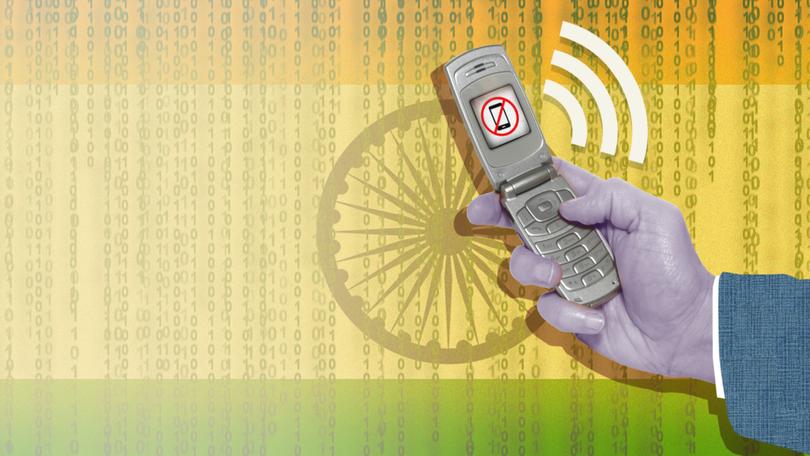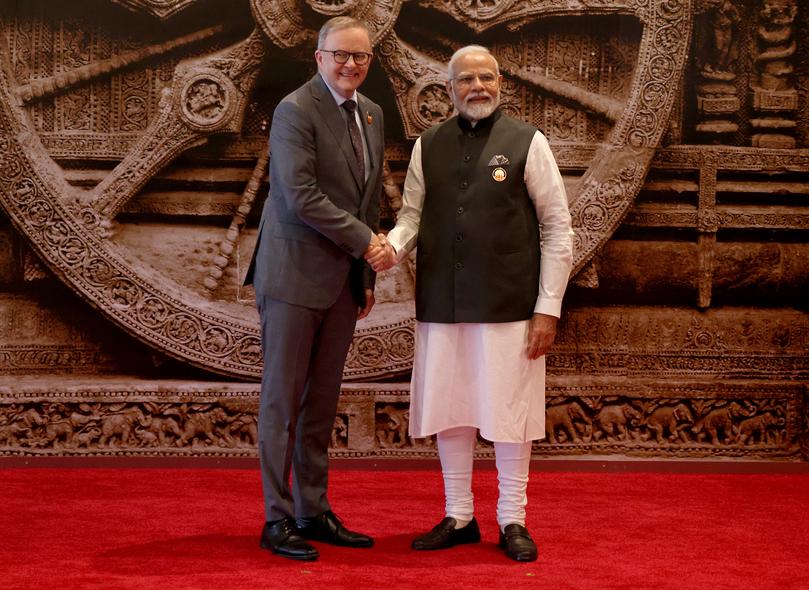Australian MPs urged to use burner phones in India as spying concerns grow on Narendra Modi’s Government
High-profile Aussies have been urged to take burner phones to India in a move underpinned by growing distrust between Australia and the Hindu nation.

DFAT has advised prominent Australians, including MPs, to take burner phones with them when they travel to India.
It is the same advice given to MPs and VIPs travelling to China and Ukraine over fears that in those locations their phones could be hacked by the Chinese and Russians.
The revelation shows underlying signs of distrust between Australia and the Hindu nationalist government led by Prime Minister Narendra Modi, after it was only recently revealed that the nest of spies that intelligence agency ASIO disrupted and kicked out of Australia in 2020 was Indian.
Sign up to The Nightly's newsletters.
Get the first look at the digital newspaper, curated daily stories and breaking headlines delivered to your inbox.
By continuing you agree to our Terms and Privacy Policy.While it is a rule of thumb that travelling VIPs are recommended to leave their regular phones at home unless they are travelling to a Five Eyes intelligence-sharing country, The Nightly understands officials have escalated their advice for India.
One prominent figure who regularly travels to India said the advice for his most recent travel this year was to take a burner phone in case his regular one was compromised. This was not the advice they received around three years ago, he said.
DFAT does not comment on the security advice it gives to officials.
It follows a slight souring of relations between Australia’s Five-Eyes and Quad allies following the killing of a prominent Canadian Sikh and US allegations that India’s security services had authorised assassinations to be carried out on US soil, which authorities ultimately foiled.
Canada has alleged Indian involvement in the killing of Hardeep Singh Nijjar who was shot dead in 2023.
Last week authorities arrested three men in connection with the killing.
Prime Minister Anthony Albanese is a major backer of Mr Modi. During the Indian Prime Minister’s visit to Australia, Mr Albanese told an adoring crowd of Australian Indians that Mr Modi was “the boss”.

The endorsement was subsequently used by Mr Modi’s Hindu Nationalist party in political ads ahead of India’s elections.
Ian Hall, Professor of International Relations at Griffith University and an expert on India, said he hoped the change in the security advice would lead to a more realistic foreign policy on India.
“This revised advice reflects unhappiness about India’s recent actions and New Delhi’s responses to Canadian and US requests for explanations and for accountability,” he said.
“I hope it also moves us away from some of the over-exuberant language we’ve seen in recent years to a more calibrated, interests-driven India policy.”
Herve Lemahieu from the Sydney-based think tank Lowy Institute said that behind the scenes, Australia was approaching the India relationship with greater caution.
“While the relationship is still considered worthwhile strategically, the gloss is coming off all the talk of shared values between the two countries,” he said.
“There is greater recognition of some of the inherent risks in dealing with an emerging power.”
Publicly, the Australian government has all but said nothing about the revelations that it was an Indian nest of spies that ASIO caught trying to steal classified defence and security secrets, as well as intelligence on Australia’s trading relationships.
Australia and India have been negotiating the Comprehensive Economic Cooperation Agreement since 2011 and in 2022 signed a first-stage Economic Cooperation and Trade Agreement.
Australia, the US and other Western allies are keen to woo India as an economic and security partner to try and balance against the growing threat of China.
This has meant sidestepping the growing concerns about Mr Modi and his BJP Hindu nationalist party who are accused of trying to silence and harass political, media and activist critics via arrests and tax raids.
When the BBC planned on screening a documentary that examined claims Mr Modi was complicit in sectarian violence during his time as the chief minister of Gujarat, it was blocked and weeks later the British broadcaster’s offices in India were raided.
Mr Modi is also accused of stoking Hindu-Muslim tensions, referring to the Muslim minority population as “infiltrators” during a campaign rally last month.
Last month’s Human Rights report by the US State Department said some of the human rights abuses taking place in India included arbitrary or unlawful killings, extrajudicial killings; enforced disappearances; torture by the government; harsh and life-threatening prison conditions; arbitrary arrest or detention; political prisoners or detainees.

